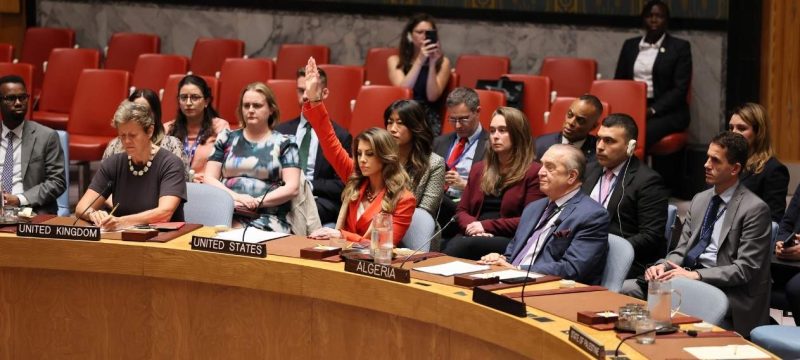NEW YORK – The United States has once again blocked a proposed Gaza Ceasefire resolution at the United Nations Security Council. This marks Washington’s sixth veto on the matter, despite growing international appeals to end the conflict.
The resolution, supported by 14 out of 15 council members, called for an immediate and unconditional ceasefire. It also urged Israel to lift restrictions on humanitarian aid and demanded the release of hostages held by Hamas and other groups.
During the tense UN session, Denmark’s Ambassador Christina Markus Lassi issued a strong warning. “Famine has already gripped Gaza. Civilians are suffering unbearably. We cannot remain silent,” she said. Despite her plea, the resolution failed after the US cast its veto, leaving Gaza’s humanitarian crisis unresolved.
On the ground, the situation remains dire. Hospitals are overcrowded, food supplies are running out, and children face extreme hunger. Aid deliveries are restricted, fueling fears that famine could spread across Gaza City and surrounding areas.
Humanitarian groups have raised alarms, warning that if immediate steps are not taken, the crisis could destabilize the entire region.
Attention now turns to the upcoming UN General Assembly session, where Gaza and the Palestinian statehood question will dominate discussions. Saudi Arabia and France are expected to push talks on a two-state solution. Several countries may also formally recognize Palestine.
Palestinian President Mahmoud Abbas will address the assembly via video link, while global attention remains fixed on the US stance.
The US veto not only blocked a possible Gaza Ceasefire, but also highlighted the deep divisions in global diplomacy. The move has placed Gaza’s future in uncertainty, underlining the urgent need for consensus and humanitarian action.
In other news read more about Taliban Ban Women’s Books And Human Rights In Universities









